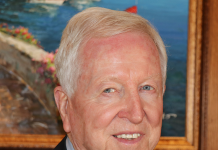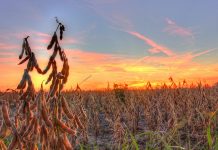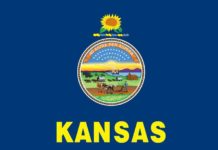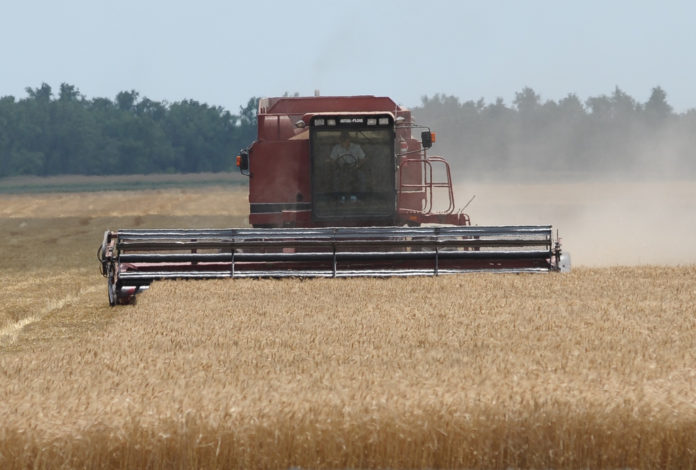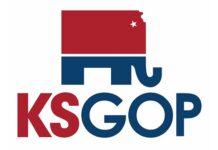The question at a recent Republican gubernatorial candidate forum seemed like a softball.
What will you do about government overregulation if elected governor?
Secretary of State Kris Kobach took a big swing.
“I have fought the federal government and its regulations directly in many times, in many scenarios, in many ways,” Kobach said.
He boasted of standing up against federal environmental protections of the lesser prairie chicken, rules that could have potentially stymied the state’s wind, agriculture and energy industries.
Indeed, four years ago, Kobach supported legislation barring the federal government from protecting the lesser prairie chicken in Kansas.
However, he went a step further.
He wanted to make it a felony for a federal employee to attempt to enforce any law, regulation or treaty dealing with the lesser prairie chicken or its relative, the greater prairie chicken.
It seemed like a winning argument, especially in the agriculture community.
Not so much.
Kobach’s fight over the prairie chicken came to be one more instance of a tense relationship with the agriculture industry, which employs about a quarter million people and is worth $68 billion to the state’s economy.
The secretary of state’s seminal moment combating federal regulations later cost him the endorsement of the Kansas Livestock Association when he ran for re-election four years ago. Why?
“We really want someone who’s going to do the job of secretary of state and leave those sorts of things to the folks who control those areas,” Livestock Association lobbyist Aaron Popelka told The Kansas City Star at the time.

Over the years, Kobach has butted heads with the state’s agriculture industry on everything from immigration policy to initiative petitions to one of the battles of which he’s most proud — federal protections of the lesser prairie chicken.
“I don’t know that it’s been a great relationship,” Popelka said in a recent interview. “Some of the issues he tends to push tend to be opposite of the views of most of our members.”
Just last week, the Kansas Farm Bureau, which boasts more than 100,000 members from every Kansas county, endorsed Republican Gov. Jeff Colyer in the GOP primary. Kobach shrugged it off, blaming it on differences in immigration policy.
“I don’t think it’s going to be that significant,” Kobach said of the Farm Bureau’s endorsement.
“Some people in the Farm Bureau want a steady supply of illegal labor,” Kobach said. “They know if I’m elected, I will be pushing E-Verify, I will be cutting benefits for illegal aliens and I will be doing everything I can to encourage illegal aliens to leave Kansas.”
But taking on a big Kansas industry like agriculture carries with it some political risk, experts say.

While western Kansas farmers tend to be conservative, they’ll remember policies that aren’t in their interest, said Russell Arben Fox, a political scientist at Friends University.
It’s not a good recipe for Kobach, “who is very notoriously hard on immigration” and has “openly embraced Donald Trump, including all of Donald Trump’s proposed trade policies,” Fox said.
“It’s probably not surprising that a lot of the conservatives of western Kansas are going to be thinking to themselves…, ‘I just don’t want a governor who’s going to stand up and applaud instead of fight back when a trade war starts costing us the ability to sell soybeans to China.’ ”
A spokeswoman for Kobach said Tuesday that he was generally supportive of Trump’s efforts to negotiate better trade deals for the country.
Fox points to former conservative Republican Congressman Tim Huelskamp as a cautionary tale about how the electorate can suddenly turn.
Huelskamp, who was booted off the Agriculture Committee in 2012, lost the Farm Bureau’s support in 2016 and eventually lost his re-election bid to current U.S. Rep. Roger Marshall.
However, Fox emphasized that Kobach is running a statewide race.
Any losses incurred in western Kansas could be offset in other, more populated parts of the state, although a recent poll showed him with a 46 percent unfavorable rating in the Kansas City area and a 38 percent unfavorable rating in Wichita.
Kobach doesn’t believe his campaign will be substantially affected if he’s not supported by a couple of agriculture’s leading groups.
“Will it influence a few people against me? Sure,” he said. “But there will be an equal number of people who will recognize the reason I didn’t get the endorsement was because I oppose illegal immigration, and Colyer’s not going to do anything to stop illegal immigration.”
Ryan Flickner, senior director of public policy for the Kansas Farm Bureau, said Kobach’s hardline position on agricultural labor raises concerns in the livestock industry.
The Farm Bureau, Flickner said, is working with the state’s congressional delegation on immigration reform.
He said any immigration reform bill approved by Congress must include a guest worker program for agricultural labor. He said current caps on the program limit the ability of the agriculture industry to hire workers throughout the year.
“If you’re going to start doing ICE raids and mandatory E-Verify, that just sends a market signal and a signal all throughout the country that you’re not really open for business,” Flickner said.
Kobach, who has built a national brand in opposing illegal immigration, has said the state doesn’t do enough to stop illegal immigration.
Among other things, he has promised to sign an executive order requiring state agencies to use the federal database, E-Verify, to confirm whether their employees and contractors can legally work in the United States.
He helped write Arizona’s first-in-the-nation E-Verify law, which was upheld by the U.S. Supreme Court after a legal challenge by the U.S. Chamber of Commerce. The Arizona E-Verify law applied to all employers, not just state agencies.
But the sour relationship between Kobach and agriculture extends beyond immigration, starting maybe as early as 2010 when he was first running for secretary of state.
In that race, Kobach called for giving voters the ability to put initiatives on the ballot, a proposal that drew a harsh reaction from Kansas agricultural leaders.
The proposal attracted opposition from the Livestock Association, the Kansas Grain & Feed Association and the Kansas Agribusiness Retailers Association. They characterized his plan as an example of “industry unfriendly” views.
There were concerns that animal-rights groups might push overly aggressive initiatives that would hurt the agriculture industry. Critics said the proposal would make Kansas look a little too much like California.
Kobach told The Associated Press at the time that the initiative process works well in many states. He said he “put the issue out there for the people of Kansas to discuss.”
Then came the fight over the lesser prairie chicken, which the Livestock Association cited as one reason for not endorsing Kobach in his 2014 re-election campaign.
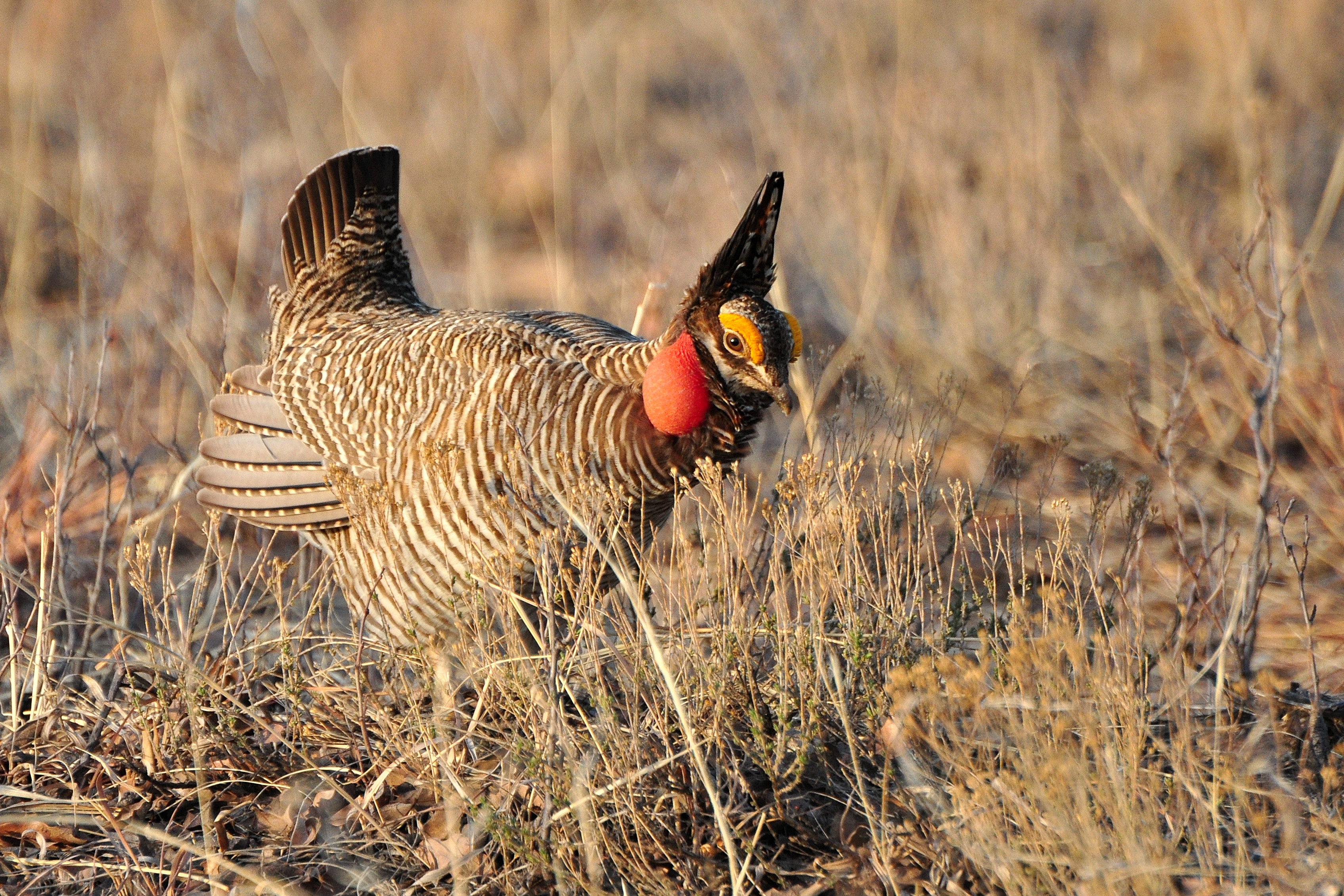
As the bill was originally proposed, it would have made it a felony for a federal employee to attempt to enforce any law, regulation or treaty dealing with the lesser prairie chicken or the greater prairie chicken. The bill eventually passed but was later narrowed in scope.
Popelka said the bill as originally drafted was unconstitutional. He said it potentially jeopardized some conservation programs that farmers use. Kobach still says the Livestock Association’s assessment of the bill was incorrect.
Immigration and the prairie chicken issue, Popelka said, illustrate a theme with the secretary of state.
Kobach “is not willing to listen to what agriculture’s saying and trying to work with us on issues,” he said.
For his part, Kobach said he understands the plight of the state’s farmers. He said he’s the only candidate who’s living on an active farm.
“I know agriculture better than any of the candidates in the race,” Kobach said. “I’m a big backer of ag, but I’m not a backer of illegal labor. The Farm Bureau is not representing its members well. Most farmers in Kansas do not want illegal labor and do not want illegal immigration.
“I am probably a truer representative of the interests of the farmer than the Farm Bureau leadership.”
Kobach said he fully expects not to receive support from the Livestock Association either.
Some political scientists said the Farm Bureau endorsement could matter. Every gubernatorial candidate the Farm Bureau has endorsed has won their race since the organization created its political action committee in 1993.
“If they can get the message to farmers and other members who are plugged in enough politically to vote in primaries, you bet it could affect the election outcome,” said Emporia State University political scientist Michael Smith.
“If I were working for Colyer, I’d say you paint yourself as a Roger Marshall, someone who can get along with people, get along with the Farm Bureau, and paint your opponent as someone who would rather throw bombs than govern.”


